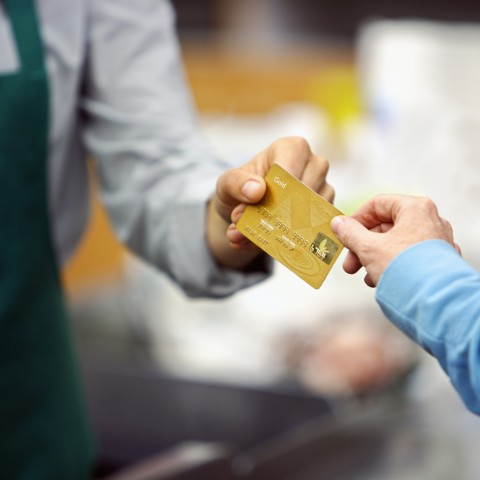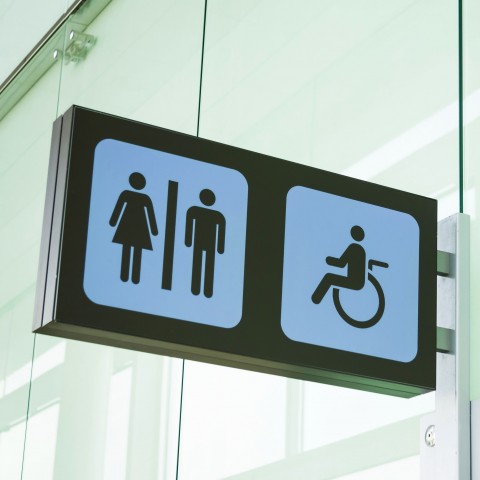Most people love to travel. It’s nice to see new things and to learn how people in other places live. It’s exciting to try new foods and traditional clothes of other nations. Simply put, there are a lot of things to learn and try while traveling. For those of you who love Thailand and get to work or learn there, traveling in Thailand is something you don’t want to miss. Before you do, though, there are some Thai phrases to know when traveling to Thailand.
For instance, once you leave the bigger cities in Thailand, you may find that most Thai people don’t speak English. So if you know basic Thai phrases for travelers, your life will be so much easier. The common Thai phrases for travelers that ThaiPod101.com will provide for you in this article will help you to get necessary information for traveling. With this list of common Thai travel phrases, you’ll be able to travel to many places in Thailand. And during the trip, you can see how Thai people live and travel.
Ready to learn Thai travel phrases? Without further ado, here’s one of our travel guides in Thailand, all about the Thai language! First, we’ll learn Thai basic words when traveling to Thailand.
Table of Contents
- Basic Expressions
- Transportation
- Shopping
- Restaurants
- Asking for and Giving Directions
- Emergencies
- Flattery Phrases
- Useful Phrases to go through Language Problems
- Handy Phrases During the Trip
- Tips
- Conclusion
1. Basic Expressions
Let’s start simple with basic Thai words for travelers. Below is a list of ways to greet in Thai when traveling to Thailand.
1- สวัสดี (sà-wàt-dii)
- Meaning: “Hello; Goodbye”
- Language breakdown: สวัสดี (sà-wàt-dii) is literally “goodness, beauty, prosperity, and safety” in Thai. And because of its positive meaning, Thai people use this word as a greeting to wish others well.
- Cultural background/relevance: Thai people have formally used สวัสดี (sà-wàt-dii) as “hello” and “goodbye” since January 22, 1943. When Thai people say สวัสดี (sà-wàt-dii), they often do an action called ไหว้ (wâi) as well. Generally, if you want to ไหว้ (wâi), mirror the pictures below.
2- ขอบคุณ (khàawp-khun)
- Meaning: “Thank you”
- Language breakdown: As opposed to สวัสดี (sà-wàt-dii), there’s no literal meaning of this word in the Thai language. Thai people use this word to show that they appreciate what other parties do for them.
- Cultural background/relevance: Thai people often ไหว้ (wâi) when saying ขอบคุณ (khàawp-khun) as an action to show their gratitude, as they do when greeting.
3- ขอโทษ (khǎaw-thôot)
- Meaning: “Sorry”
- Language breakdown: ขอโทษ (khǎaw-thôot) is literally “ask for forgiveness” in Thai. Thai people use this word to show that they’re sorry for what they did.
- Cultural background/relevance: If you come to Thailand, you really should learn how to ไหว้ (wâi). Thai people also do this action when they say ขอโทษ (khǎaw-thôot).
4- ใช่ (châi)
- Meaning: “Yes”
- Cultural background: There’s a body gesture that Thai people do when saying ใช่ (châi); they sometimes nod their head a few times as a way to say ใช่ (châi).
5- ไม่ใช่ (mâi châi)
- Meaning: “No”
- Language breakdown: The word ไม่ (mâi) is “no” or “not” in Thai. Combined with ใช่ (châi), the word ไม่ใช่ (mâi châi), means “not yes,” which is “no.” Thai people often use ไม่ (mâi) as a word to make a sentence negative.
- Cultural background/relevance: Many Thai people use a gesture when saying ไม่ใช่ (mâi châi) as well. They sometimes shake their head a few times as a way to say ไม่ใช่ (mâi châi).
2. Transportation
There’s no denying that transportation is a huge part of any trip. Trying to travel in a country you’re not familiar with can be hard. However, if you know some Thai phrases for travelers, it will be a bit easier.
1- ไปที่….. (bpai thîi…..)
- Meaning: “I want to go to …..”
- Language breakdown: ไป (bpai) means “go” in Thai and ที่ (thîi) means “at.” This may seem a little bit weird as there’s no word that means “I want to.” As a Thai learner, you should know one characteristic of the Thai language: If Thai people know that another party understands who the subject of a sentence is, they just cut it out of the sentence. In this example, Thai people automatically know that the speaker is the one who wants to go, so they only say ไปที่….. (bpai thîi…..).
2- ไปที่…..ได้มั๊ย (bpai thîi…..dâi mái)
- Meaning: “Can you go to…..?”
- Language breakdown: Thai people put ได้มั๊ย (dâi mái) at the end of sentences, and it means “can you?” or “can I?” in Thai. Continuing from the sentence above, when putting ได้มั๊ย (dâi mái) at the end of a sentence, it means, “Can you go to…..?” Similar to the sentence above, Thai people just cut “you” out of the sentence as they assume the taxi driver understands that he/she is the one being asked.
- Cultural background/relevance: Taking a taxi is a convenient way of traveling in big cities. However, drivers don’t know all locations. So you should ask if the driver can get you to your destination or not.
3- ป้ายรถเมล์อยู่ที่ไหน (bpâai rót mee yùu thîi năi)
- Meaning: “Where is the bus stop?”
- Language breakdown: ป้ายรถเมล์ (pâi-ród-may) is “bus stop” in Thai. อยู่ (yùu) is one of the words for “be” in Thai. And ที่ไหน (thîi năi) is “where” in Thai. As opposed to English, Thai people switch the order of the sentence so it becomes ป้ายรถเมล์อยู่ที่ไหน (bpâai rót mee yùu thîi năi).
- Cultural background/relevance: Not all cities in Thailand have taxis, so another choice for traveling in the cities is taking a bus.
4- จะไปที่….ถ้าถึงแล้วบอกหน่อยได้มั๊ย (jà bpai thîi …. thâa thǔeng láaeo bàawk nàauy dâi mái)
- Meaning: “I’m going to ….., please tell me when we arrive.”
- Language breakdown: The first part of this sentence is similar to the one above, so we’ll skip that part and focus on the latter half. ถ้าถึงแล้ว (thâa thǔeng láaeo) means “when arrive.” บอก (bàawk) means “tell.” And หน่อยได้มั๊ย (nàauy dâi mái) is a phrase Thai people put at the end of a sentence, and means “Can you?” or “Can I?” in Thai. But as mentioned before, since the other parties should know that he/she is being asked, people cut “you” out of the sentence.
- Cultural background/relevance: If you plan to travel in the city by bus, it may be a bit hard and confusing. You may be able to find information in advance, such as which bus you should take and from where. However, as the names for each bus stop aren’t shown, you won’t know when you should get off. This is even a problem for Thai people.
Sometimes, staff on a bus called กระเป๋ารถเมล์ (grà-bpǎo rót mee) will say the name of the bus stop, but you may not be familiar enough with Thai pronunciation to be sure of whether it’s the place you want to go or not. So it’s best to ask the กระเป๋ารถเมล์ (grà-bpǎo rót mee) about this when you pay for your ticket using this sentence.
- Additional note: When you take a bus in Thai, you’ll find two staff members on the bus. One is the driver and the other is called กระเป๋ารถเมล์ (grà-bpǎo rót mee). There’s no English word for กระเป๋ารถเมล์ (grà-bpǎo rót mee), but he/she is the one who sells you the ticket. When you get on the bus, you should first find an available seat. After that, the กระเป๋ารถเมล์ (grà-bpǎo rót mee) will come to sell the ticket to you.
5- จะไปที่…..ต้องลงสถานีไหน (jà bpai thîi ….. dtâawng long sà-thăa-nii năi)
- Meaning: “I’m going to……, which station should I get off?”
- Language breakdown: We’ll skip the first part and focus on the latter part, like we did above, since it’s the same. สถานี (sà-thăa-nii) is “station” in Thai. ไหน (nǎi) is “which” in Thai. And ต้องลง (dtâawng long) means “should get off” in Thai. Putting all of this together, it means, “Which station should I get off?” As you can guess, Thai people just cut out the word “I” since they assume other parties know that the one who asks is the one who wants to get off.
- Cultural background/relevance: Fortunately for BTS (which is only available in Bangkok) and the train, the names of the stations are shown. This means that you can ask the staff which station you should get off at in order to reach your destination.
6- ซื้อตั๋วที่ไหน (súue dtǔua thîi năi)
- Meaning: “Where can I buy a ticket?”
- Language breakdown: ซื้อ (súue) is “buy” in Thai. ตั๋ว (dtǔua) is “ticket” in Thai. And ที่ไหน (thîi năi) is “where” in Thai. Combining everything together, you get ซื้อตั๋วที่ไหน (súue dtǔua thîi năi), which means, “Where can I buy a ticket?” in Thai. You may notice that in the Thai language, the question words such as “where,” “can I?,” and “can you?” are put at the end of the sentence, which is opposite to English.
- Cultural background/relevance: When taking a bus, as mentioned above, you can pay after you get on. But for BTS and train, you have to buy the ticket before getting on. Normally, the ticket booth is near the station.
7- ซื้อตั๋วไปที่…..สำหรับ…..คน (súue dtǔua bpai thîi…..sǎm-ràp……khon)
- Meaning: “I want to buy ticket(s) for going to ….. for ….. persons.”
- Language breakdown: You already know the meaning of the first part of the sentence from above, so here we’ll focus on the last part. สำหรับ (sǎm-ràp) means “for” in Thai. And คน (khon) is “unit for person” in Thai. So all together it means, “I want to buy ticket(s) for going to ….. for ….. persons.” The word “I want” is naturally cut out of the sentence.
3. Shopping

Here comes many people’s favorite activity: shopping. Buying things from the local area is a must when you go on a trip. Of course, you’ll want to buy food, drinks, traditional products, as well as souvenirs. Learning Thai phrases for travel helps, particularly the Thailand travel phrases below.
1- ราคาเท่าไหร่ (raa-khaa thâo-rài)
- Meaning: “How much is this?”
- Language breakdown: ราคา (raa-khaa) means “price” in Thai. And เท่าไหร่ (thâo-rài) means “how much.” Since you may not know the name of the thing you want, you can point at it and say ราคาเท่าไหร่ (raa-khaa thâo-rài) in order to ask, “How much is this?”
2- มีโปรโมชั่นมั๊ย (mii bproo-moo-chân mái)
- Meaning: “Is there any promotion?”
- Language breakdown: มี (mii) is “have,” or in this case, “there is” in Thai. The word มั๊ย (mái) has no meaning, but Thai people put it at the end of a sentence to make it a question.
- Cultural background/relevance: If you’re shopping from locals, this phrase may not be very useful as they normally don’t have promotions. But if you buy from a big store, don’t forget to ask. If you buy a lot, they may even give you something for free even if there’s no promotion.
3- ลดได้มั๊ย (lót dâi mái)
- Meaning: “Can you give me a discount?”
- Language breakdown: You’ll see that Thai people cut a lot of words out of this sentence. ลดราคา (lót raa-khaa) is “discount” in Thai. However, people shorten this word here to ลด (lót). And as mentioned before, ได้มั๊ย (dâi mái) is the word Thai people put at the end of sentences and it means “Can you?” or “Can I?” in Thai. Basically, there’s no “you” or “me” in this sentence.
- Cultural background/relevance: For food and drink, normally, Thai people don’t ask for discounts. However, for other products, you can try asking for a discount, as some sellers already set their price a little bit higher just in case a customer does ask for a discount. Don’t forget to smile sweetly when you ask for a discount, that may help. ^^
4- ที่นี่อะไรขายดี (thîi nîi à-rai khǎai dii)
- Meaning: “What is the best seller here?”
- Language breakdown: ที่นี่ (thîi nîi) is “here” in Thai, อะไร (à-rai) is “what” in Thai, and ขายดี (khǎai dii) is “sell a lot” in Thai. Actually, the literal Thai meaning of this sentence is, “What is being sold a lot here?” But in English, people don’t normally ask like that, so it is equal to “What is the best seller here?”
- Cultural background/relevance: When you go to a souvenir shop, you may have no idea what to buy since you may not know what the products are. You can ask this and see what’s popular.
5- มีอันใหม่มั๊ย (mii an mài mái)
- Meaning: “Do you have a new one?”
- Language breakdown: มี (mii) is “have” in Thai, อันใหม่ (an mài) is “new one,” and as you may remember, the word มั๊ย (mái) has no meaning but Thai people put it at the end of sentences to make it a question. In this sentence, Thai people cut “you” out of the sentence as they assume people should know that you’re the one asking. So by combining everything together, we get มีอันใหม่มั๊ย (mii an mài mái).
- Cultural background/relevance: Sometimes, the product that’s shown may look a little dirty because a lot of people have touched it or tried it out. If you want to buy it, you can always ask and see if the seller has a new one or not.
6- มีสีอื่นมั๊ย (mii sǐi ùuen mái)
- Meaning: “Do you have another color?”
- Language breakdown: This sentence is pretty similar to the one above, so we’ll focus only on the part that’s different. สีอื่น (sǐi ùuen) means “other color” in Thai. The rest is the same.
7- มีขนาดอื่นมั๊ย (mii khà-nàat ùuen mái)
- Meaning: “Do you have another size?”
- Language breakdown: Again, this sentence is very similar to the one above so we’ll only focus on the part that’s different. ขนาดอื่น (khà-nàat ùuen) means “other size” in Thai. The rest is the same.
- Cultural background/relevance: When you buy clothes in Thailand, even with no fitting room, you can try the clothes on. Most of the time, the seller has a ผ้าถุง (phâa-thǔng), which means “sarong” in Thai, for you to use. You may feel a little bit weird, but that’s how Thai people do it when they buy clothes from a small shop.
8- จ่ายด้วยบัตรเครดิตได้มั๊ย (jàai dûuai bàt khree-dìt dâi mái)
- Meaning: “Can I pay with a credit card?”
- Language breakdown: จ่าย (jàai) means “pay” in Thai, ด้วย (dûuai) means “with,” บัตรเครดิต (bàt khree-dìtt) means “credit card,” and lastly, ได้มั๊ย (dâi mái) is the word Thai people put at the end of sentences and it means “Can you?” or “Can I?” in Thai. Of course, Thai people also cut the subject from the sentence, which is “I” in this case.
- Cultural background/relevance: If you go to a big department store, they normally accept credit cards with no additional charge. However, most local stores don’t allow credit cards. If they do, you should check if there’s an additional charge or not.
4. Restaurants
One of the activities people do—whether they travel or not—is eating. So let’s learn some useful Thai travel phrases you can use in restaurants in Thailand.
1- ขอเมนูหน่อย (khǎaw mee-nuu nàauy)
- Meaning: “Menu, please.”
- Language breakdown: ขอ (khǎaw) is “ask for” in Thai. And หน่อย (nàauy) has no meaning in this case. Thai people normally put this word at the end of a sentence.
- Cultural background/relevance: If you go to a small local restaurant, the menu is shown on the wall instead of in book form.
2- สั่งอาหารหน่อย (sàng aa-hǎan nàauy)
- Meaning: “Order, please.”
- Language breakdown: สั่ง (sàng) is “order” in Thai., อาหาร (aa-hǎan) is “food,” and just like above, หน่อย (nàauy) is no-meaning word Thai people put at the end of sentences.
3- เอา….. (ao…..)
- Meaning: “I want…..”
- Language breakdown: Actually, เอา (ao) means “take,” but in this case, it means “want.” Naturally, Thai people assume that the other party knows that the speaker is the one who wants food, so they cut “I” out of the sentence.
4- อันนี้เจมั๊ย (an níi jee mái)
- Meaning: “Is this vegetarian food?”
- Language breakdown: อันนี้ (an níi) means “this” in Thai, and อาหารเจ (aa-hǎan jee) is “vegetarian food.” But Thai people just shorten the word by cutting อาหาร (aa-hǎan) out, as when people say เจ (jee), Thai people automatically understand that it means “vegetarian food.” The word มั๊ย (mái) has no meaning, but Thai people put it at the end of a sentence to make it a question.
- Cultural background/relevance: In Thai, there’s a certain period during each year when some people will eat a vegetarian food called เทศกาลกินเจ (thêet-sà-gaan gin jee). Still, some restaurants serve vegetarian food year-round as well. You can look for the sign indicating that vegetarian food is served, which is a yellow flag.
5- แพ้…..กินได้มั๊ย (pháae…..gin dâi mái)
- Meaning: “I’m allergic to……, can I eat this?”
- Language breakdown: แพ้ (pháae) can mean “lose” or “allergic” in Thai. กิน (gin) means “eat,” and as already shown above, ได้มั๊ย (dâi mái) is the word Thai people put at the end of sentences and it means “Can you?” or “Can I?” in Thai. And as usual, Thai people cut out the subject of the sentence.
- Cultural background/relevance: Not many restaurants show the ingredients of the dishes on their menu, so if you’re not sure if you can eat it or not, you should ask to be safe.
6- เอาเผ็ดน้อย (ao phèt náauy)
- Meaning: “Please make it less spicy.”
- Language breakdown: As mentioned before, เอา (ao) means “take,” but in this case it means “want.” เผ็ด (phèt) means “spicy” or “hot” in Thai, and น้อย (náauy) means “little.” Literally, this sentence means “want little spicy” which is equivalent to “make it less spicy” in English.
- Cultural background/relevance: Thai food is known to be spicy. If you’re not sure whether you can eat spicy food or not, but still want to try spicy Thai food, you can ask them to make it less spicy.
7- เอาไม่เผ็ด (ao mâi phèt)
- Meaning: “Please make it not spicy.”
- Language breakdown: You’ve already learned each of these three words from this article. เอา (ao) means “take” but is “want” in this case. The word ไม่ (mâi) is “no” or “not” in Thai, and เผ็ด (phèt) means “spicy” or “hot” in Thai.
- Cultural background/relevance: For those who can’t endure spicy food, you can ask them to make it not spicy. For some recipes, if they can, they’ll do it for you.
8- เก็บเงินหน่อย (gèp ngooen nàauy)
- Meaning: “Bill, please.”
- Language breakdown: เก็บ (gèp) is “collect” in Thai, เงิน (ngooen) is “money,” and หน่อย (nàauy) has no meaning but Thai people put it at the end of sentences. So in total, it literally means, “Collect money please,” which is “Bill, please,” in English.
- Cultural background/relevance: You can also use a body gesture for this as well. Once you get your waiter’s or waitress’ attention, you point your forefinger to the food on your table and then make a circle. They’ll understand what you mean.
5. Asking for and Giving Directions
When you go someplace you’ve never been before, you naturally need help with directions. So you should remember the following Thai phrases for travelers.
1- ไป……ยังไง (bpai…..yang-ngai)
- Meaning: “How to go to …..?”
- Language breakdown: ยังไง (yang-ngai) is “how to” in Thai. ไป (bpai) is “go.” This one is quite simple. Combining both, it’s ไป……ยังไง (bpai…..yang-ngai).
- Cultural background/relevance: Thai people are kind and willing to help. If you’re not sure if your pronunciation of the place is correct or not, you can show the picture or the Thai name of the place to help you communicate better.
2- เลี้ยวซ้าย (líiao sáai)
- Meaning: “Turn left.”
- Language breakdown: This one is also very simple. เลี้ยว (líiao) is “turn” in Thai and ซ้าย (sáai) is “left” in Thai.
3- เลี้ยวขวา (líiao khwǎa)
- Meaning: “Turn right.”
- Language breakdown: From the phrase above, you already know what เลี้ยว (líiao) means. So let’s focus on the last word. ขวา (khwǎa) is “right” in Thai.
4- ตรงไป (dtrong-bpai)
- Meaning: “Go straight.”
- Language breakdown: This one is easy too. ตรง (dtrong) is “straight” in Thai. And as mentioned before, ไป (bpai) is “go” in Thai.
5- เดินไปได้มั๊ย (dooen bpai dâi mái)
- Meaning: “Can I walk there?”
- Language breakdown: เดิน (dooen) is “walk” in Thai, ไป (bpai) is “go,” and ได้มั๊ย (dâi mái) is the word Thai people put at the end of sentences and it means, “Can you?” or “Can I?” Combining everything together, its meaning isn’t like English. That’s because Thai people cut “I” and “there” out. They assume that the speaker is the one going there.
- Cultural background/relevance: You can ask local people whether you can walk to your destination or not. Sometimes, it may seem far on the map, but there’s a shortcut. You may hear these two words in the answer: ใกล้ (glâi) which is “close” and ไกล (glai) which is “far.”
6. Emergencies
Despite wishing against them, emergency situations can happen any time. In case you find yourself in an emergency, it’ll be very useful if you can communicate in Thai a little. So let’s practice some of these basic Thai phrases for travelers.
1- ช่วยด้วย (chûuai dûuai)
- Meaning: “Help.”
- Language breakdown: ช่วยด้วย (chûuai dûuai) is the phrase Thai people use to ask for help in Thai. It can be used to ask for help in most emergency situations.
- Cultural background/relevance: Thai people are very kind and willing to help. If you say ช่วยด้วย (chûuai dûuai), meaning “help,” Thai people will try to help you.
2- เรียกรถพยาบาลให้หน่อย (rîiak rót phá-yaa-baan hâi nàauy)
- Meaning: “Please call an ambulance for me.”
- Language breakdown: เรียก (rîiak) is “call” in Thai, รถพยาบาล (rót phá-yaa-baan) is “ambulance,” and ให้หน่อย (hâi nàauy) is the phrase Thai people put at the end of a requesting sentence.
- Cultural background/relevance: In case you want to be more specific that you need medical assistance, you can just say this sentence. The cost for Thai medical treatment isn’t very high compared to other countries. Thai hospitals are also known to be destinations for “medical tourism,” so you don’t have to worry much.
3- ฉันรู้สึกไม่ดี (chǎn rúu-sùek mâi dii)
- Meaning: “I don’t feel well.”
- Language breakdown: ฉัน (chǎn) is “I” in Thai and รู้สึก (rúu-sùek) is “feel.” As mentioned before, ไม่ (mâi) is “not” in Thai. And ดี (dii) is “good” or “well” in Thai. So combining everything together, you get: “I don’t feel well.”
- Cultural background/relevance: You can use this sentence to convey that you don’t feel alright. This is quite useful to know, as you don’t have to identify how you feel bad. This is enough for the listener to know that you need medical attention.
4- ฉันเจ็บ (chǎn jèp)
- Meaning: “I am hurt.”
- Language breakdown: As mentioned in the sentence above, ฉัน (chǎn) is “I” in Thai. And เจ็บ (jèp) is “hurt” in Thai.
5- สถานีตำรวจอยู่ที่ไหน (sà-thǎa-nii dtam-rùuat yùu thîi nǎi)
- Meaning: “Where is the police station?”
- Language breakdown: สถานี (sà-thǎa-nii) is “station” in Thai, ตำรวจ (dtam-rùuat) is “policeman”, อยู่ (yùu) is one of the words for “be” in Thai, and ที่ไหน (thîi nǎi) is “where.”
- Cultural background/relevance: If you lose something in Thailand, the sad fact is that getting it back is unlikely. You may need a document from the police for an insurance claim, or in order to get a new passport if you lost yours.
6- โรงพยาบาลอยู่ที่ไหน (roong-pháa-yaa-baan yùu thîi nǎi)
- Meaning: “Where is the hospital?”
- Language breakdown: This sentence is pretty similar to the one above, and is another of the most basic Thai travel words and phrases. The only difference is โรงพยาบาล (roong-pháa-yaa-baan), which is “hospital” in Thai.
- Cultural background/relevance: If you’re in Bangkok, it’s not too hard to find a hospital as there are plenty here. Some of these hospitals have staff members who can speak other languages, such as Japanese and Korean. But if you’re in a suburban area, there may not be many hospitals in those areas.
7- ร้านขายยาอยู่ที่ไหน (ráan khǎai yaa yùu thîi nǎi)
- Meaning: “Where is the drug store?”
- Language breakdown: Again, this is a similar sentence to the one above. The only difference is ร้านขายยา (ráan khǎai yaa) which is “drug store” in Thai.
- Cultural background/relevance: In Thailand, when you go to the hospital, it’s kind of a one-stop service. You meet the doctor and get the medicine from the hospital. However, if you’re not seriously ill, you can buy some medicine from a drug store without a medical prescription.
8- ฉันทำพาสปอร์ตหาย (chǎn tham pháat-bpàawt hǎai)
- Meaning: “I lost my passport.”
- Language breakdown: ฉัน (chǎn) is “I” in Thai, and ทำ…หาย (tham…..hǎai) is “lost….” There’s no “my” in Thai sentences because Thai people assume that other parties know that since “I” is the speaker, it should be “my” passport that is lost.
- Cultural background/relevance: In case you lose your passport in Thai, you need to go to the police station to get the document to use at the embassy.
7. Flattery Phrases
When you travel, you may like the food you eat, the places you see, or even start to like the people there. Here are common Thai phrases for travelers you can use to show how you feel.
1- ฉันชอบ….. (chǎn châawp…..)
- Meaning: “I like ……”
- Language breakdown: ฉัน (chǎn) is “I” in Thai, ชอบ (châawp) is “like.” Then, you can put anything you want to say that you like after this phrase, such as:
- คนไทย (khon thai) is “Thai people” in Thai.
- อาหารไทย (aa-hǎan thai) is “Thai food” in Thai.
- ประเทศไทย (bprà-thêet thai) is “Thailand” in Thai.
2- ที่นี่สวยมาก (thîi nîi sǔuai mâak)
- Meaning: “This place is very beautiful.”
- Language breakdown: ที่นี่ (thîi nîi) is “this place” or “here” in Thai. สวย (sǔuai) is “beautiful” and มาก (mâak) is “very.”
3- อาหารอร่อยมาก (aa-hǎan à-ràauy mâak)
- Meaning: “This food is very delicious.”
- Language breakdown: อาหาร (aa-hǎan) is “food” in Thai, อร่อย (à-ràauy) is “delicious,” and as mentioned above, มาก (mâak) is “very.”
4- อันนี้กลิ่นหอมมาก (an níi glìn hǎawm mâak)
- Meaning: “This smells very nice.”
- Language breakdown: อันนี้ (an níi) is “this” in Thai, กลิ่นหอม (glìn hǎawm) is “smell nice,” and มาก (mâak) is “very.”
5- อันนี้น่ารักมาก (an níi nâa-rák mâak)
- Meaning: “This is very cute.”
- Language breakdown: This sentence is similar to the one above. The only difference is น่ารัก (nâa-rák), which is “cute” in Thai.
6- คุณใจดีมาก (khun jai-dii mâak)
- Meaning: “You are so kind.”
- Language breakdown: คุณ (khun) is “you” in Thai, ใจดี(jai-dii) is “kind,” and มาก (mâak) is “very.”
- Cultural background/relevance: Thai people are known to be kind. If you get help from Thai people and you really appreciate it, you can say this to them.
8. Useful Phrases to go through Language Problems
Generally, not all Thai people can speak English, so some people decide to learn basic Thai in order to communicate better during the trip. In this case, these common Thai travel phrases will be very useful for you. Be sure to study these Thai phrases for tourists and practice often!
1- คุณพูดภาษาอังกฤษได้มั๊ย (khun phûut phaa-săa ang-grìt dâi mái)
- Meaning: “Can you speak English?”
- Language breakdown: คุณ (khun) is “you” in Thai, พูด (phûut) is “speak,” ภาษา (phaa-săa) is “language,” and อังกฤษ (ang-grìt) is “English.” And as mentioned before, ได้มั๊ย (dâi mái) is the word Thai people put at the end of sentences and it means “Can you?” or “Can I?” in Thai.
- Cultural background/relevance: In case you want to ask someone something, but you’re not sure if they can speak English or not, you should ask them this. If they can’t speak English, they’ll shake their head to say “no.” But if they can speak English, they’ll reply back to you in English.
2- ฉันพูดภาษาไทยไม่ได้ (chǎn phûut phaa-săa thai mâi dâi)
- Meaning: “I can’t speak Thai.”
- Language breakdown: ฉัน (chǎn) is “I” in Thai, พูด (phûut) is “speak,” and ไม่ได้ (mâi dâi) is the word you put after a verb to show that you “can’t” do that action. ภาษา (phaa-săa) is “language” and ไทย (Thai) is “Thai.”
- Cultural background/relevance: If you’re Asian, Thai people may assume that you’re Thai and try to speak Thai to you. You can use this sentence to tell them that you can’t speak Thai.
3- ฉันไม่เข้าใจ พูดอีกครั้งได้มั๊ย (chǎn mâi khâo-jai phûut ìik khráng dâi mái)
- Meaning: “I don’t understand. Can you say that again?”
- Language breakdown: ฉัน (chǎn) is “I” in Thai, ไม่ (mâi) is “no” or “not,” เข้าใจ (khâo-jai) is “understand,” พูด (phûut) is “speak,” and อีกครั้ง (ìik khráng) is “again.” ได้มั๊ย (dâi mái) is the word Thai people put at the end of sentences and it means “Can you?” or “Can I?” in Thai.
- Cultural background/relevance: After you say this sentence to Thai people, they’ll either speak slower or use body language to help with communication.
4- ช่วยพูดช้า ๆ หน่อย (chûuai phûut cháa cháa nàauy)
- Meaning: “Speak slowly please.”
- Language breakdown: พูด (phûut) is “speak” in Thai, ช้า ๆ (cháa cháa) is “slow,” and as explained before, หน่อย (nàauy) is the word Thai people put at the end of sentences when asking for help. It has no meaning in this case.
5- เขียนให้ได้มั๊ย (khǐian hâi dâi mái)
- Meaning: “Can you write it down?”
- Language breakdown: เขียน (khǐian) is “write” in Thai, and ได้มั๊ย (dâi mái) is the word Thai people put at the end of sentences and it means “Can you?” or “Can I?” in Thai. The word ให้ (hâi) is the shortened version of ให้ฉัน (hâi chǎn), which means “for me” in Thai.
- Cultural background/relevance: Thai pronunciation can be hard. If you’re not sure of something, you can ask Thai people to write it down.
6- อันนี้อ่านยังไง (an níi àan yang-ngai)
- Meaning: “How to read this?”
- Language breakdown: อันนี้ (an níi) is “this” in Thai, อ่าน (àan) is “read,” and ยังไง (yang-ngai) is “how.”
- Cultural background/relevance: As mentioned before, Thai pronunciation is hard. With just a slight change of tone, the meaning of a word can become different. So if you’re not sure how to read each word, you should ask Thai people to help.
9. Handy Phrases During the Trip
Besides all of the sentences above, ThaiPod101.com thinks the following may also be handy for travelers.
1- ช่วยถ่ายรูปให้ได้มั๊ย (chûuai thàai rûup hâi dâi mái)
- Meaning: “Can you take a picture for me?”
- Language breakdown: ช่วย (chûuai) is “help” in Thai, ถ่ายรูป (thàai rûup) is “take picture,” and ได้มั๊ย (dâi mái) is the word Thai people put at the end of sentences and it means “Can you?” or “Can I?”
- Cultural background/relevance: Thai people love to take pictures and selfies. So you don’t have to be shy if you want to take a picture. Thai people are willing to help if you ask them to take a picture for you.
2- ห้องน้ำอยู่ที่ไหน (hâawng-nám yùu thîi nǎi)
- Meaning: “Where is the toilet?”
- Language breakdown: ห้องน้ำ (hâawng-nám) is “toilet” in Thai, อยู่ (yùu) is one of the words for “be” in Thai, and ที่ไหน (thîi nǎi) is “where.”
- Cultural background/relevance: In big cities, toilets for males and females are separated most of the time. But if you go to a rural area, in some places there may not be separate bathrooms for males and females.
10. Tips
To make a sentence sound formal in Thai, Thai people put the words ครับ (khráp) and ค่ะ (khâ) at the end of sentences when speaking. ครับ (khráp) is used when the speaker is male, while ค่ะ (khâ) is used when the speaker is female. If you want to say sorry informally, there’s no need to put ครับ (khráp) or ค่ะ (khâ) at the end of a sentence.
Apart from ครับ (khráp) and ค่ะ (khâ), Thai people sometimes put นะ (ná) at the end of informal sentences to make them sound more friendly. These words are คำลงท้าย (kham-long-tháai) in Thai.
11. Conclusion
As you can see, in the Thai language, there are a lot of travel phrases for you to learn. Continue studying the Thai travel phrases in English above, because with these travel phrases in your Thai vocabulary, your trip will be more convenient and go a lot more smoothly. We also hope that you see now why travel phrases in Thai language learning are so important and useful.
So keep practicing and don’t be shy to use them in real situations, so that you’ll soon be able to more effectively talk with Thai people, including travel guides in Thailand that you meet!
Once you can remember all of these common phrases for travelers, you can begin studying other interesting lessons such as the most common text slang or ten lines you need to know for self-introduction at ThaiPod101.com.





![How to ไหว้ [wâi]](https://wordlist.languagepod101.com/wordlist/media/25584&v=medium.jpg)
















